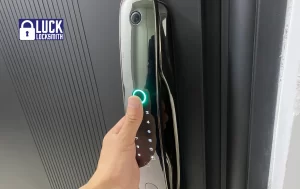Because of their importance for stability and security, mortise locks are a common option for both residential and commercial buildings. They may, however, finally experience problems, just like any mechanical device. Developing the ability to recognize the indications that your mortise lock requires maintenance can potentially avert more serious issues later on. The following are important signs to look out for:
Difficulty Turning the Key
Having trouble turning the key is one of the most typical indications that your mortise lock needs maintenance. If the key is difficult to insert or turn smoothly, there may be internal wear or a buildup of dirt and filth. This problem can easily be resolved with routine lubrication, but if it continues, more inspection could be necessary.
Lock Jamming
A constant jamming of your mortise lock, which keeps you from being able to open or close the door, is an obvious indication that something is wrong. This might be the result of worn parts, misalignment, or even a broken key. Jamming can be annoying and may result in a lockout emergency, so it’s important to take quick action.
Key Sticking or Breaking
It is time for repair if your key breaks off inside the lock or becomes stuck in it. A stuck key could be a sign of debris buildup inside the lock or damage to the internal agency. In either method, it’s necessary to resolve the problem before it causes more harm or a total lock failure.
Visible Wear and Tear
Check for any unmistakable symptoms of wear and tear regularly on your mortise lock. Check for bent parts, cracks, or rust. The security and operation of the lock could be threatened by any physical harm. When major damage is followed, it’s time to think about repairs or maybe a complete replacement.
Door Misalignment
Your mortise lock may sustain additional damage if your door is not aligned properly, causing undue tension on it. Look for alignment problems if your door isn’t closing correctly or the latch isn’t engaging smoothly. If the issue continues after making minor changes to the hinges, the lock might require repair.
Unusual Noises
When utilizing a mortise lock, strange noises like scratching or clicking may be an indication of internal problems. These noises frequently indicate that there is not enough lubrication or that parts are rubbing against one another improperly. Even if some noises could be typical, any constant sound needs to be looked into.
Locking Mechanism Failure
It is concerning if your mortise lock does not engage or disengage correctly. These problems, such as a latch that doesn’t catch or a deadbolt that doesn’t extend or retract as it should, can seriously threaten your security. It is imperative to take immediate action to prevent lockouts and security breaches.
Frequent Key Replacement
If you frequently have to replace keys because they are worn out or bent, there may be more problems than simply the keys. A broken lock can put too much strain on the key, requiring replacements more often. In the long term, you can save time and money by taking care of the lock’s fundamental problem.
Conclusion
A mortise lock needs to be maintained for convenience and security. You can detect problems early and stop more serious concerns later on by keeping an eye out for these warning indicators. To have your mortise lock analyzed and repaired, see a qualified locksmith or contact Luck Locksmith if you observe any of these signs. Your lock can continue to be a dependable protector of your house or place of business with routine upkeep and prompt repairs.




